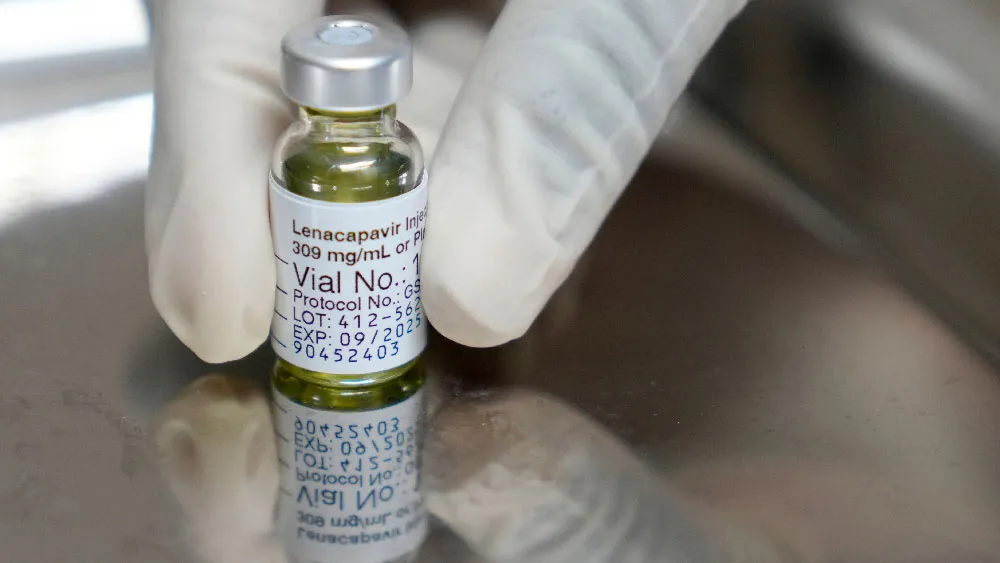February 9, 2011
Ask the Doc :: How to Deal with Possible Syphilis Exposure?
Jason Faulhaber, M.D. READ TIME: 2 MIN.
Question:
Dear Doctor Jason,
I recently tricked with someone - I think about two weeks ago. A friend of a friend now tells me that he has syphilis. So I'm kicking myself bigtime. So how do I know if I've caught it? And if I have, what's the bad news?
Signed, Concerned
Doctor Jason's Response:
No need to be kicking yourself over this. Syphilis, as well as a few other sexually transmitted infections, does not necessarily provide obvious symptoms and may not be 100% preventable with condoms.
Syphilis infection occurs in a series of stages. The first stage of Syphilis is a chancre, which is a small painless ulcer at the site where it enters your body (skin, penis, mouth, rectum). It can appear and disappear so quickly that you wouldn't even know it was there if you couldn't see it. It typically appears within 1-3 weeks of exposure.
The second stage tends to be recognised by a rash on the body. The rash can be of any type--itchy, not itchy, bumps, flat, pimple-like, similar to hives--and it tends to appear about 2-12 weeks after exposure, so it can overlap with the chancre.
The next stages do not necessarily have any symptoms until many years later.
The best way to know if you have become infected (when you don't have any symptoms) is to be tested. A blood test for Syphilis is usually positive after about 3 weeks of exposure; however, it may still be negative. The test usually takes up to 3 days to return. The Department of Public Health of Massachusetts recommends that any known contact of someone who tests positive for Syphilis should be tested for Syphilis AND should receive one shot of Penicillin, as long as there is no severe allergy. If the test is positive, then another shot of Penicillin should be given 1 week after the first shot. If the test is negative, no more shots and just resume routine screening for sexually transmitted infections based on the number of partners and sexual practices.
Stay healthy,
Doctor Jason
Dr. Faulhaber is a graduate of Tulane University in Psychology and Cellular and Molecular Biology and received his medical degree from the University of Medicine and Dentistry of New Jersey, Robert Wood Johnson Medical School. He performed his residency training in Internal Medicine and Pediatrics at Saint Vincent's Hospital in Manhattan, where he then served as a Chief Resident in Internal Medicine. He completed his fellowship in Infectious Diseases at New York University, where he specialized in HIV/AIDS, Hepatitis, and fungal infections. Since fellowship, he has been working as an Internal Medicine/Infectious Diseases physician at Fenway Community Health in Boston. He is a Clinical Instructor in Medicine at Harvard Medical School, and he is affiliated with Beth Israel Deaconess Medical Center. He has been the lead author or co-author of several journal articles and textbook chapters on infections with HIV, other viruses, bacteria, and fungi. He is also accredited by the American Academy of HIV Medicine.
This story is part of our special report: "Ask the Doc". Want to read more? Here's the full list.
Disclaimer:
The content provided on this website is for informational purposes only and is not professional medical advice, diagnosis, treatment or care, nor is it intended to be a substitute. Always seek the advice of a physician or other qualified health provider properly licensed to practice medicine or general health care in your jurisdiction concerning any questions you may have regarding any content obtained from this website and any medical condition you believe may be relevant to you or to someone else. Never disregard professional medical advice or delay in seeking it because of something you have read on this website. Always consult with your physician or other qualified health care provider before embarking on a new treatment, diet or fitness program. Content obtained from the website is not exhaustive and does not cover all diseases, ailments, physical conditions or their treatment.


